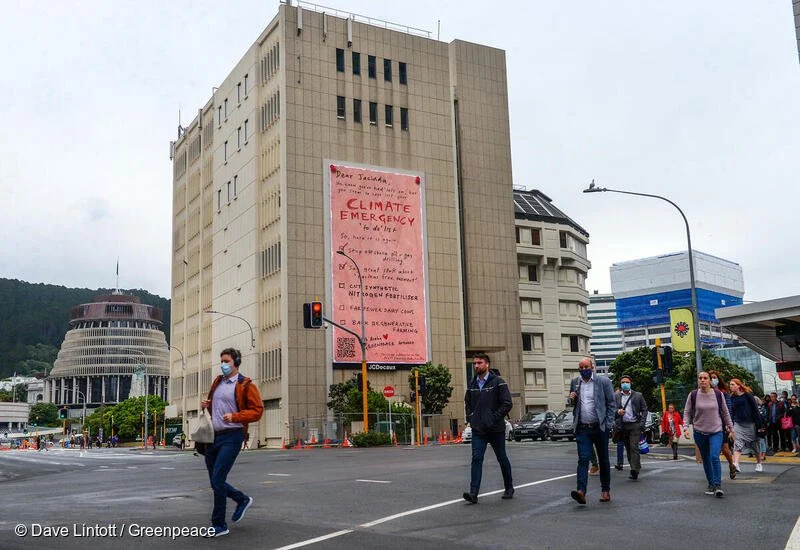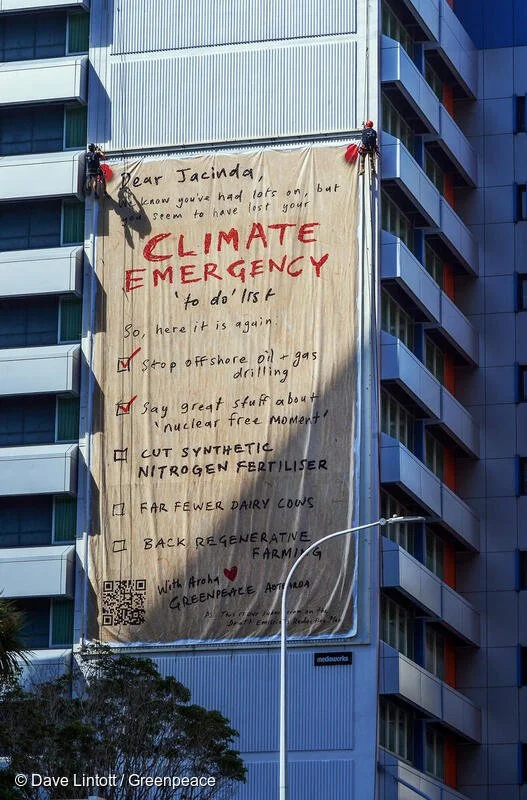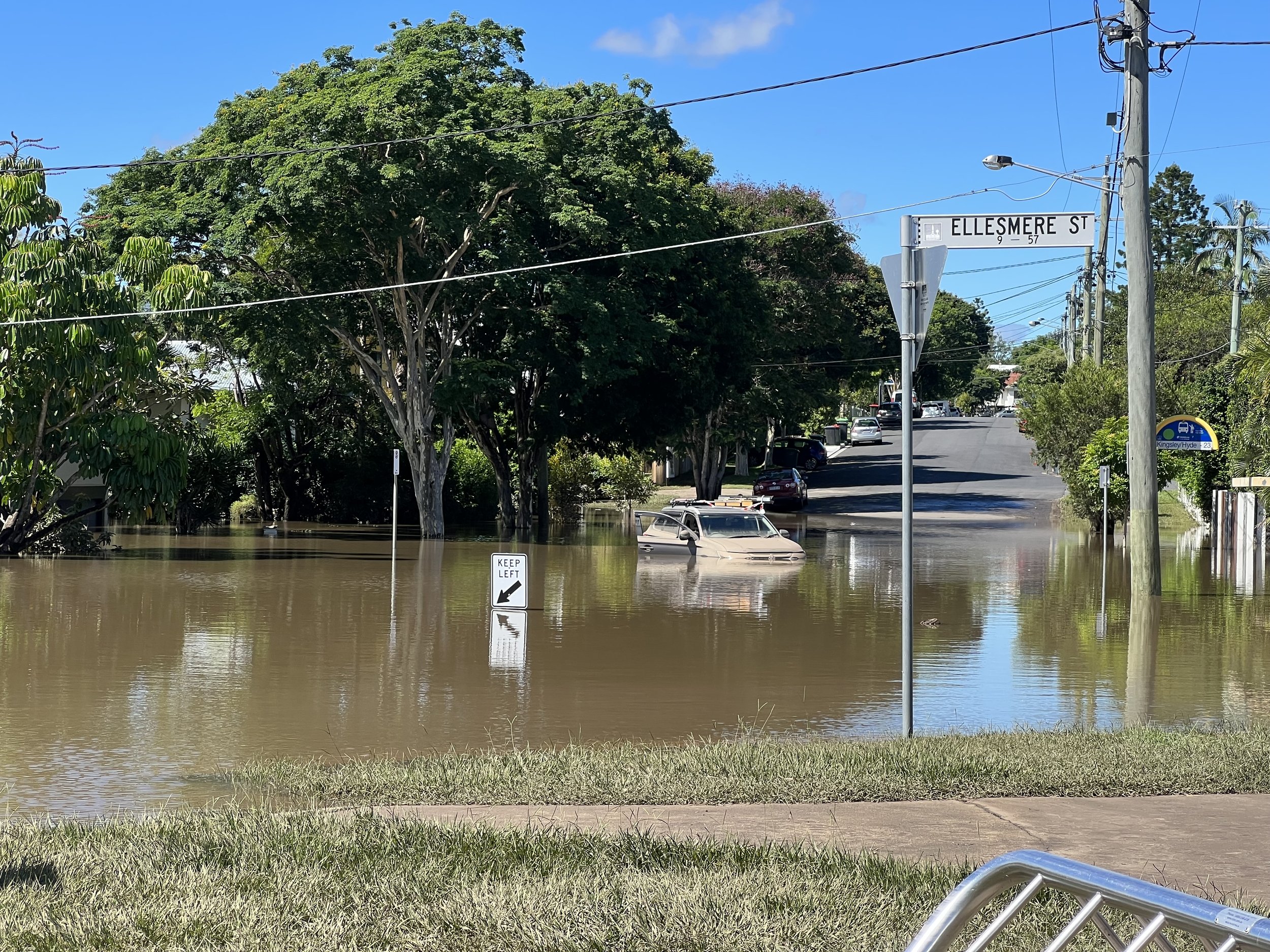Call for indigenous peoples to be part of climate solutions
The latest UN report on climate adaptation calls for indigenous knowledge and science to be brought together to help secure a liveable future.
Delivered by the Intergovernmental Panel on Climate Change (IPCC), it warns that many of the impacts of global warming are now “irreversible” although there’s still a brief window of time to avoid some of the worst outcomes.
In the Australasian region, Māori,Aboriginal and Torres Strait Islander Peoples need to be part of future action, passing down their knowledge about climate change planning that promotes collective action and mutual support across the region, the report said.
On the one-year anniversary of New Zealand Prime Minister Jacinda Ardern’s Climate Emergency declaration, Greenpeace Aotearoa positioned a four storey high, crowdfunded “climate emergency to-do list” billboard on a wall near Parliament in Wellington.
Kaupapa Māori Researcher at Scion, Sylvia Tapuke agrees. "It is critical to allow indigenous people and their communities to be heard, to develop their strategies,” she says. “Authorities need to create space, provide access, share power and resources on an as-needed basis.
The biggest problem is that part of the climate change issue is based on long-term systemic matters and decisions that have not been in favour of the environment's health and wellbeing of the environment or its indigenous caretakers.
The Greenpeace billboard near parliament.
A contributing author to the IPCC report, Professor Bronwyn Hayward from Canterbury University’s Department of Political Science and International Relations says the weight of evidence now shows the world is moving more quickly than previously thought towards reaching the limits of the climate risk it can adapt to.
"New Zealanders only need to look to the recent repeat flooding in Westport, or Brisbane and wider Queensland this week, where eight lives have been lost and 50,000 homes are currently without power, to understand what ‘reaching the limits of adaptation’ really means.”
Flooding in the Brisbane suburb of Yeronga.
The report indicated that 40 percent of the world, or 3.5 billion people are now “highly vulnerable” to climate change, particularly in cities where compounding risks such as heat combined with air pollution will particularly impact the poor, elderly, children, Indigenous communities and ethnic minorities.
Professor Hayward says we can still secure a liveable future if we act now and reduce greenhouse gases. She says the report highlights the importance of bringing national government funding to support equitable local community partnerships and taking collective action.
"This isn’t about building more seawalls or planting large blocks of exotic trees as carbon sinks. Some of this action is inevitable but the evidence suggests this needs to be very carefully managed to avoid new and greater risk and impacts.
"Instead, the report also focuses on the value of social infrastructure (income protection, education, health and housing) alongside green ecological investment and engineering to secure a more liveable future, especially in cities, where two-thirds of the world will be living by 2050.
"Despite the stark messages, I do find it remarkable that nearly 200 governments have signed off this report, acknowledging that climate impacts are now questions of “human rights”, and “justice” and that Indigenous and local knowledge and “equitable” partnerships are the best way to solve these problems.
This report from the IPCC is the second of three reviews from the world's foremost body of climate researchers. Last August, the first instalment highlighted the scale of the effect that humans were having on the climate system.
This new report looks at the causes, impacts and solutions to climate change. It gives the clearest indication to date of how a warmer world is affecting all the living things on Earth.


